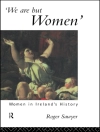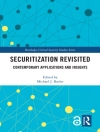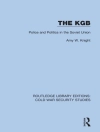This book explores the informal (political) patronage relations between the urban poor and service delivery organisations in Mumbai, India. It examines the conditions of people in the slums and traces the extent to which they are subject to social and political exclusion. Delving into the roles of the slum-based mediators and municipal councillors, it brings out the problems in the functioning of democracy at the ground level, as election candidates target vote banks with freebies and private-sector funding to manage their campaigns. Starting from social justice concerns, this book combines theory and insights from disciplines as diverse as political science, anthropology and policy studies. It provides a comprehensive, multi-level overview of the various actors within local municipal governance and democracy as also consequences for citizenship, urban poverty, gender relations, public services, and neoliberal politics.
Lucid and rich in ethnographic data, this book will be useful to scholars, researchers and students of social anthropology, urban studies, urban sociology, political science, public policy and governance, as well as practitioners and policymakers.












